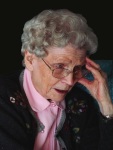I wrote a bit ago about the fact that Support For Home In-Home Care is certified by the Music & Memory organization – and we are delighted by that. The program was designed for use in facilities, and it is rather more complex to implement and administer in multiple home care settings, which is one reason we are among only a few home care agencies to be certified.
However, the benefits of Music & Memory, as part of the skillset of a trained caregiver, is truly amazing.

We introduced the program in the home of one of our clients recently, and, yesterday, we received the first detailed report from one of her Support For Home caregivers. This client has dementia, which is the “target” population for Music & Memory.
We have had some difficulty getting this client to be more social and accepting of home care, until recently. We have made a few breakthroughs, but we were really hoping Music & Memory would open her up to more reflection and communication. Well, as reported by our Home Care Aide, it worked! 🙂
Here are some of the songs they listed to, and the results:
- “Love Me Tender” – “She was able to explain to me the details of how she would work for money to buy Elvis’ records. She even told me about the bright design in the record store.”
- “I’m Gettin’ Smitten” – She explained to me how she would get her girlfriends and practice dancing. They practiced almost twice a week, so that they would be able to dance properly at the neighborhood dance.”
- “God Bless America” – “As soon as it played she was able to remember the artist and the song’s name. She told me about how she and her friends would save up 10 cents to be able to see her at the theatre. She also explained how she was very popular with adults and young adults. This brought her to remember that you could only ever hear orchestras in church, which was why her music was so popular.”
- “Can’t Help Lovin'” – “She began to sing the lyrics to the song. She said she remembers hearing it on the radio from 1930 to 1940. She kept listening to it on the radio until they got a TV.”
- “I’ll Be Seeing You” – “She said she can still hear her mother singing that song. It was one of her favorites, although her father hated it. She laughed when she told me how her mother would sing it and her father would make faces.”
There is more – and there will be much, much more Music & Memory in our client’s life. It is absolutely amazing. The program has all of us in the office creating our own playlists for our own future caregivers to use! 🙂
Best wishes. Bert

















